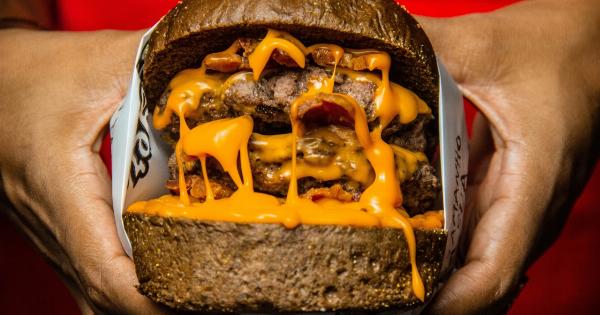Memory is an essential cognitive function that allows us to retain and recall information, experiences, and knowledge.
It plays a crucial role in a child’s overall development, helping them learn, make sense of the world around them, and form lasting memories. However, the impact of memory destruction in children is a growing concern, and recent research suggests that the culprit may be hiding in their drinks.
The Link between Memory and Childhood Development
Memory is an intricate process that involves the encoding, storage, and retrieval of information in our brain.
From a young age, children start developing their memory skills, which significantly contribute to their cognitive growth and academic performance. Positive experiences and interactions help in forming strong memories, aiding in social development and emotional well-being.
Memories can be short-term or long-term, with the latter being more robust and durable. Childhood memories often play a significant role in shaping an individual’s personality and future behavior.
Unfortunately, the destruction of these memories can impede a child’s development and have lasting consequences.
Identifying the Culprit: Sugary Drinks
Research has shown that consumption of sugary drinks can have adverse effects on a child’s memory. These drinks, loaded with excessive amounts of sugar, are a popular choice among children due to their sweet taste and attractive packaging.
However, behind the appealing facade lies a hidden danger.
Excessive sugar intake leads to a surge in blood sugar levels, causing a rapid release of insulin. This insulin spike triggers a chain of biochemical reactions that disrupt brain function, including memory formation and consolidation.
Additionally, sugar interferes with neuroplasticity, the brain’s ability to adapt and form new connections.
A study conducted by researchers at the University of California found that high-sugar diets impair memory and learning abilities in both children and adults.
The consumption of sugary drinks, in particular, was associated with decreased memory performance and reduced hippocampal function, a brain region critical for memory formation.
Unveiling the Mechanism: The Role of Inflammation
The detrimental effects of sugary drinks on memory can be attributed, to a large extent, to their role in triggering inflammation.
Excessive sugar consumption promotes inflammation in the body, leading to a cascade of harmful effects on various organs, including the brain.
When inflammation occurs in the brain, it disrupts the delicate balance of neurotransmitters, impairs neuronal communication, and damages brain cells.
This process not only hinders memory formation but also increases the risk of developing neurological conditions such as Alzheimer’s disease and dementia later in life.
Protecting Your Child’s Memory: Promoting Healthy Alternatives
Considering the detrimental effects of sugary drinks on memory and overall health, it is crucial for parents and caregivers to promote healthier alternatives.
By making conscious choices, we can protect our child’s memory and aid in their cognitive development. Here are some tips:.
1. Encourage Water Consumption
Water is the best drink for maintaining hydration and supporting overall health. Encourage your child to drink an adequate amount of water throughout the day, replacing sugary beverages whenever possible.
2. Introduce Freshly Squeezed Fruit Juices
Instead of reaching for commercially available fruit juices that are often packed with added sugars, opt for freshly squeezed juices. These provide essential nutrients while minimizing the sugar content.
3. Explore Herbal Teas and Infusions
Herbal teas and infusions are flavorful alternatives that can be enjoyed both hot and cold. They offer a range of health benefits and can be a great way to introduce new flavors to your child.
4. Educate Children about the Dangers of Sugary Drinks
Teach your child about the harmful effects of excessive sugar consumption on their health, including memory. Empower them to make informed choices and understand the importance of moderation.
5. Set a Good Example
Children often mimic the behavior of their parents and caregivers. By prioritizing healthier drink options yourself, you create a positive environment that encourages the adoption of better habits.
Conclusion
Memory destruction in children is a growing concern, with sugary drinks being the hidden culprit. Excessive sugar consumption disrupts brain function, impairs memory formation, and triggers inflammation.
As caregivers and parents, it is our responsibility to educate children about the dangers of sugary drinks and promote healthier alternatives. By doing so, we can safeguard their cognitive development and ensure a brighter future for the next generation.




























